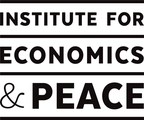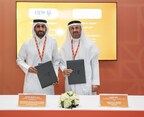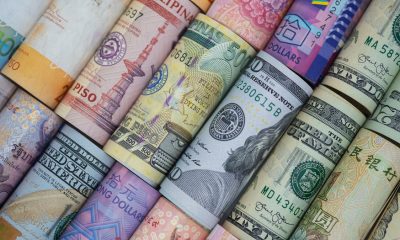Fintech PR
Conflict deaths at highest level this century causing world peacefulness to decline, Global Peace Index reveals

LONDON, June 28, 2023 /PRNewswire/ — Today marks the launch of the 17th edition of the Global Peace Index from international think-tank, the Institute for Economics & Peace (IEP).
Key results
- Deaths from global conflict increased by 96% to 238,000
- New data shows higher number of conflict deaths in Ethiopia than Ukraine, eclipsing the previous global peak during the Syrian war
- 79 countries witnessed increased levels of conflict including Ethiopia, Myanmar, Ukraine, Israel, and South Africa
- The global economic impact of violence increased by 17% or $1 trillion, to $17.5 trillion in 2022, equivalent to 13% of global GDP
- A Chinese blockade of Taiwan would cause a drop in global economic output of $2.7 trillion, almost double the loss that occurred due to the 2008 global financial crisis
- Despite the conflict in Ukraine, 92 countries improved on military expenditure and 110 decreased their military personnel
- Conflicts are becoming more internationalised with 91 countries now involved in some form of external conflict, up from 58 in 2008
Impact of the War in Ukraine on Peacefulness
- Ukraine recorded the largest deterioration, falling 14 places to 157th
- The economic impact of violence has increased by 479% or $449 billion, equivalent to 64% of Ukraine’s GDP
- Despite the conflict, Russia’s incarceration rate, violent demonstrations, terrorism impact and homicide rates have improved over the past year, with the homicide rate at its lowest since 2008
- 65% of men in Ukraine aged 20 to 24 years have fled the country, or died in the conflict
The 17th edition of the annual Global Peace Index (GPI), the world’s leading measure of peacefulness, reveals the average level of global peacefulness deteriorated for the ninth consecutive year, with 84 countries recording an improvement and 79 a deterioration. This demonstrates that the deteriorations were larger than the improvements, as the post-COVID rises of civil unrest and political instability remain high while regional and global conflicts accelerate.
Iceland remains the most peaceful country, a position it has held since 2008, followed by Denmark, Ireland, New Zealand and Austria. For the sixth consecutive year, Afghanistan is the least peaceful country, followed by Yemen, Syria, South Sudan, and the Democratic
Republic of Congo. Highlighting the shifting dynamics of conflict, both Afghanistan and Syria recorded improvements in peacefulness.
Ukraine’s overall score recorded a decline of 13%, the largest deterioration in the 2023 GPI, and is now 157th on the Index. Libya experienced the largest improvement in overall peacefulness, improving by 7% and rising 14 places to 137th.
The shift in the global distribution of conflict continued as major conflicts in the MENA region and South Asia declined, while conflicts in sub-Saharan Africa, Europe, and Asia-Pacific intensified. The Russia and Eurasia region recorded the largest deterioration in peacefulness in the world.
Ten of the 23 GPI indicators improved, 11 deteriorated, and two had no change. The largest deteriorations were in External Conflicts Fought and Deaths from Internal Conflict. Other notable deteriorations included Neighbouring Country Relations and Political Instability, where 59 countries deteriorated.
The impact of violence on the global economy increased by $1 trillion to a record $17.5 trillion. This is equivalent to 13% of global GDP, approximately $2,200 per person. This was due to increased military expenditure owing to the Ukraine war. The disparity in the economic impact of violence is stark: the ten countries most affected averaged 34% of GDP, compared to just 3% for the ten least affected.
Steve Killelea, Founder & Executive Chairman of IEP, said: “The 2023 Global Peace Index highlights the contrasting dynamics of militarisation and conflict. On the one hand, the majority of countries are decreasing their reliance on the military, while on the other hand an increasing number of conflicts are becoming internationalised. Conflict deaths are the highest since the Rwandan genocide which had over 800,000 deaths and sparked a wave of global action.
“After the Afghanistan, Iraq, and Syrian wars and now the Ukraine war it is obvious that the most powerful armies cannot prevail against a well-resourced local population. War has become mostly unwinnable, and an increasingly heavy economic burden. This is highlighted by the impact of a potential economic blockade on Taiwan, which would result in a global economic recession twice as impactful as the global financial crisis of 2008.”
The rise in conflicts
79 countries deteriorated in the Ongoing Conflict domain, with conflict related deaths increasing by 96% compared to the prior year. Conflict deaths are now at the highest level this century. The Ethiopian conflict claimed the most lives in 2022 with new data finding that battlefield deaths were over 100,000, while disease and famine related deaths were conservatively estimated at over 200,000. This conflict has been largely hidden from the media because of domestic media restrictions and internet blackouts. This has coincided with US and UN aid organisations stopping food shipments because of corruption in the food supply chains.
In sub-Saharan Africa, Mali recorded the largest deterioration with conflict-related deaths increasing by 154%, while violence against civilians rose by 570%. Eswatini experienced the next largest drop in peacefulness in the region.
The Ukraine war has seen the total number of Ukrainians who were either refugees or internally displaced jump from 1.7% before the conflict, to over 30% and is likely to continue increasing. Recent data has found that up to 65% of men in Ukraine aged 20 to 24 years have fled the country or died in the conflict[1]. The report estimates 83,000 deaths are related to the conflict so far.
In contrast to the devastating effects of the war on the Russian population, other internal factors have improved including the incarceration rate, a decrease in violent demonstrations, and the impact of terrorism. The homicide rate within Russia is now at its lowest level since the inception of the GPI in 2008. If not for the Ukraine conflict, Russia would have been one of the largest improvers in peace in this year’s Index.
The global number of refugees and internally displaced people continues to rise; there are now 15 countries with over 5% of their population displaced.
Taiwan Blockade
While China is not currently directly involved in any external conflicts, it has become more assertive in the South China Sea and has intensified aerial operations near Taiwan. The Index indicates that if a Chinese blockade of Taiwan were to materialise, it would lead to a drop in global economic output of $2.7 trillion, or 3% of global GDP in the first year alone.
Almost 60% of this loss would occur in China and Taiwan. The Chinese economy would shrink by an estimated 7%, and Taiwan’s by almost 40%. China’s five largest trading partners are established democracies that are militarily aligned – the US, Japan, South Korea, Germany, and Australia.
Militarisation and Technology
Although conflict is increasing, more countries are directing military expenditure toward other priorities including healthcare, education, infrastructure, and pandemic recovery. The improvements in militarisation were widespread with every region improving. However, the total military spending increased by 17% since 2008 with the largest increases coming from China ($180 billion), the US ($70 billion), and India ($40 billion).
Drones are being increasingly used in conflicts, including in Ukraine, Ethiopia, and Myanmar. The total number of drone attacks increased by 41% in 2022, with the number of different groups using drones increasing by 24%.
Regional Highlights
- The largest regional improvements occurred in MENA and North America. North America’s improvement was driven by Canada, but the United States deteriorated slightly where homicide rates have risen to levels six times higher than Western Europe.
- Since 2016 MENA has seen the largest improvements in peace globally, however it is still the least peaceful region. The epicentre of terrorism has shifted from the MENA region into sub-Saharan Africa, especially the Sahel.
- Central America, the Caribbean and South America have recorded substantial deteriorations, falling mainly on measures of repression, violence, and conflict.
- Coastal West Africa is at its most peaceful since reporting began in 2008, with countries in the region recording an average improvement of 5% in the past 14 years. The coastal region between Morocco and Ghana recorded no deaths from terrorism in 2022, in contrast to the neighbouring countries in the Sahel.
- Europe is still the most peaceful region in the world, despite military expenditure and Neighbouring Country Relations deteriorating because of the Ukraine war. The region is still home to seven of the ten most peaceful countries, with the level of violent demonstrations, protests and riots remaining high. The other three most peaceful countries are in the Asia-Pacific region.
NOTES TO EDITORS
For more information and to download the Global Peace Index 2023, visit visionofhumanity.org and economicsandpeace.org. The full GPI report, articles and interactive maps are available at: visionofhumanity.org
Twitter: @globpeaceindex
Facebook: facebook.com/globalpeaceindex
Instagram: instagram.com/globalpeaceindex
About the Global Peace Index (GPI)
Produced by the international think-tank the Institute for Economics & Peace (IEP), the GPI report presents the most comprehensive data-driven analysis to date on peace, its economic value, trends, and how to develop peaceful societies. The report covers 99.7% of the world’s population and uses 23 qualitative and quantitative indicators from highly respected sources to compile the Index. These indicators are grouped into three key domains: Ongoing Conflict, Safety and Security, and Militarisation.
About the Institute for Economics and Peace (IEP)
IEP is an international and independent think tank dedicated to shifting the world’s focus to peace as a positive, achievable and tangible measure of human well-being and progress. It has offices in Sydney, Brussels, New York, The Hague, Mexico City and Harare.
[1] Source: UN World Population Prospects
Logo – https://mma.prnewswire.com/media/792052/IEP_Logo.jpg
View original content:https://www.prnewswire.co.uk/news-releases/conflict-deaths-at-highest-level-this-century-causing-world-peacefulness-to-decline-global-peace-index-reveals-301858599.html

Fintech PR
Wahed appoints Khalid Al Jassim as Executive Chairman of Wahed MENA to help guide the strategic growth of Wahed in the region

DOHA, Qatar, Nov. 24, 2024 /PRNewswire/ — Wahed, a global Shariah-compliant fintech, has appointed Khalid Al Jassim as Chairman of Wahed MENA.
On this appointment, Khalid commented, ”I am excited to guide Wahed’s growth in the region. Wahed’s mission of furthering Islamic Finance is one I resonate with deeply and I look forward to supporting its growth ambitions.”
Khalid has over twenty five years of investment banking and corporate advisory experience gained with some of the most innovative and groundbreaking institutions in the world.
His career spans leading firms including SABIC, Arthur Anderson and Arcapita Bank in Bahrain, where he was instrumental in making it into one of the PE powerhouses in the region. His responsibilities started in the earlier years with establishing the Investment Placement Team and transforming it into one of the most robust teams in the industry. At the time that Khalid left Arcapita to build his personal business, he was an Executive Director. Today he is Chairman of Afkar Vision, a private advisory house specialized in mergers and acquisitions with offices in Manama, Dubai and Riyadh.
As well as being one of the earliest investors in Wahed, he is currently Chairman of the Audit Committee and Board Member at Bahrain Islamic Bank, the 4th oldest Islamic Bank in the World and Board Member at SICO Bank and SICO Capital in Saudi, an $8bn asset manager in the region.
Mohsin Siddiqui, Wahed CEO said, “We are delighted to announce Khalid’s appointment. His unique understanding of the financial landscape in the MENA region is unparalleled and we are excited to bring this expertise in continuing to grow our presence in the region.”
About Wahed
Founded in 2015, Wahed is a financial technology company that is advancing financial inclusion through accessible, affordable, and values-based investing. The company has made significant inroads in the world Shariah compliant investing by creating an easy-to-use digital platform that provides a suite of Shariah compliant investing products including managed portfolios and venture and real estate investments. Wahed caters to over 400,000 customers globally and manages over $ 1 billion in assets.
For more information, visit: www.wahed.com
Photo – https://mma.prnewswire.com/media/2566076/Wahed_MENA_Khalid_Al_Jassim.jpg
![]() View original content:https://www.prnewswire.co.uk/news-releases/wahed-appoints-khalid-al-jassim-as-executive-chairman-of-wahed-mena-to-help-guide-the-strategic-growth-of-wahed-in-the-region-302314779.html
View original content:https://www.prnewswire.co.uk/news-releases/wahed-appoints-khalid-al-jassim-as-executive-chairman-of-wahed-mena-to-help-guide-the-strategic-growth-of-wahed-in-the-region-302314779.html

Fintech PR
Qatar Development Bank announces strategic investment in global Islamic FinTech, Wahed

DOHA, Qatar, Nov. 24, 2024 /PRNewswire/ — Qatar Development Bank (QDB) announces a strategic investment in Wahed, a global Shariah-compliant fintech.
Wahed currently manages over $1 billion in assets and has attracted over 400,000 clients worldwide. The company is built on the principles of democratizing access to financial services and offers clients access to Shariah-compliant investments in its mobile app. Wahed removes the barriers to sophisticated investment management services that have been traditionally reserved for high-net-worth investors.
Khalid Al Jassim, Executive Chairman of Wahed MENA said: ‘We are delighted to welcome our new shareholders, QDB. We believe Qatar is fully aligned with our mission in creating a technology-first Islamic finance leader that unlocks a financial ecosystem free from Riba. We look forward to supporting the Qatar National Vision 2030 of becoming a leading knowledge-based economy.
Ali Rahimtula, Partner at Cue Ball Capital said: “Qatar Development Bank’s strategic investment is a clear signal of the faith the industry has in Wahed and its ability to create the future of Islamic Finance.”
About Wahed
Founded in 2015, Wahed is a financial technology company that is advancing financial inclusion through accessible, affordable, and values-based investing. The company has made significant inroads in the world Shariah compliant investing by creating an easy-to-use digital platform that provides a suite of Shariah compliant investing products including managed portfolios and venture and real estate investments. Wahed caters to over 400,000 customers globally and manages over $ 1 billion in assets.
For more information, visit: www.wahed.com
About Qatar Development Bank
Qatar Development Bank’s mission is to advance the economic and innovation development cycle of Qatar, supporting and contributing to the nation’s economic diversification. As well as a focus on the development of Qatar’s private sector, QDB is a powerful catalyst for socio-economic development in the country, empowering the local economy and bettering living standards.
For more information, visit: https://www.qdb.qa/
Photo – https://mma.prnewswire.com/media/2566075/Qatar_Development_Bank_Announcement.jpg
![]() View original content:https://www.prnewswire.co.uk/news-releases/qatar-development-bank-announces-strategic-investment-in-global-islamic-fintech-wahed-302314778.html
View original content:https://www.prnewswire.co.uk/news-releases/qatar-development-bank-announces-strategic-investment-in-global-islamic-fintech-wahed-302314778.html

Fintech PR
China’s AIMA brand electric motorbike is now in Bangladesh

DHAKA, Bangladesh, Nov. 23, 2024 /PRNewswire/ — With the popularity of electric vehicles in Bangladesh, the globally renowned AIMA brand has also arrived in Bangladesh. The esteemed DX Group has brought the AIMA F-626 to customers. This environmentally friendly battery-operated electric motorbike has already been approved by the Bangladesh Road Transport Authority (BRTA) now.
In light of the increasing popularity of electric motorcycles in the country, the internationally-leading brand AIMA has entered the market. By the end of 2023, AIMA electric two-wheelers had established a presence in over 50 countries worldwide, with 11 global production bases, including overseas factories in Indonesia and Vietnam. In 2022, AIMA collaborated with Rob Janoff, the designer of the Apple logo, to refresh the brand’s VI system with a youthful and fashionable image. In 2023, AIMA teamed up with PANTONE, the global authority in color expertise, to create the trending color of the year. As an industry leader, AIMA spearheads the electric two-wheeler sector and showcases the prowess of a leading electric two-wheeler brand on a global scale. As of March 31, 2024, AIMA’s total electric two-wheeler sales had reached 80 million units, earning certification from Frost & Sullivan, a globally recognized business growth consulting firm, as the “Global Leading Electric Two-wheeler Brand”.
Over the years, AIMA has always been a product trendsetter in the electric two-wheeler sector. As of March 31, 2024, the total sales volume of AIMA electric two-wheelers reached 80 million, and Frost & Sullivan, a world-renowned market consulting company, awarded AIMA with the market status certification of the “Global Leading Electric Two-wheeler Brand (by Sales)”.
AIMA adhere to the customer-centered product philosophy and technologies that support long-term innovation and breakthroughs. We believe that the efficiency and modern technology of the AIMA F-626 will present an excellent alternative means of communication for our customers.


Photo – https://mma.prnewswire.com/media/2557788/image.jpg
Photo – https://mma.prnewswire.com/media/2565550/Image2.jpg
Logo – https://mma.prnewswire.com/media/2449955/5026987/AIMA_Technology_Logo.jpg
![]() View original content:https://www.prnewswire.co.uk/news-releases/chinas-aima-brand-electric-motorbike-is-now-in-bangladesh-302314773.html
View original content:https://www.prnewswire.co.uk/news-releases/chinas-aima-brand-electric-motorbike-is-now-in-bangladesh-302314773.html

-

 Fintech4 days ago
Fintech4 days agoFintech Pulse: Industry Updates, Innovations, and Strategic Moves
-

 Fintech3 days ago
Fintech3 days agoFintech Pulse: Daily Industry Brief – A Dive into Today’s Emerging Trends and Innovations
-

 Fintech PR4 days ago
Fintech PR4 days agoROLLER Releases 2025 Attractions Industry Benchmark Report, Unveiling Key Trends and Revenue Strategies
-

 Fintech PR3 days ago
Fintech PR3 days agoTAILG Represents the Industry at COP29, Advancing South-South Cooperation with Low-Carbon Solutions
-

 Fintech6 days ago
Fintech6 days agoFintech Pulse: Navigating Expansion, Innovation, and Sustainability
-

 Fintech5 days ago
Fintech5 days agoFintech Pulse: Milestones, Partnerships, and Transformations in Fintech
-

 Fintech PR2 days ago
Fintech PR2 days agoAlkira Ranked 25th Fastest-Growing Company in North America and 6th in the Bay Area on the 2024 Deloitte Technology Fast 500™
-

 Fintech PR4 days ago
Fintech PR4 days agoThe CfC St. Moritz Announces New Speakers from BlackRock, Binance, Bpifrance, Temasek, PayPal, and More for Upcoming 2025 Conference




